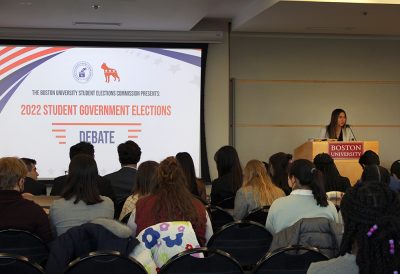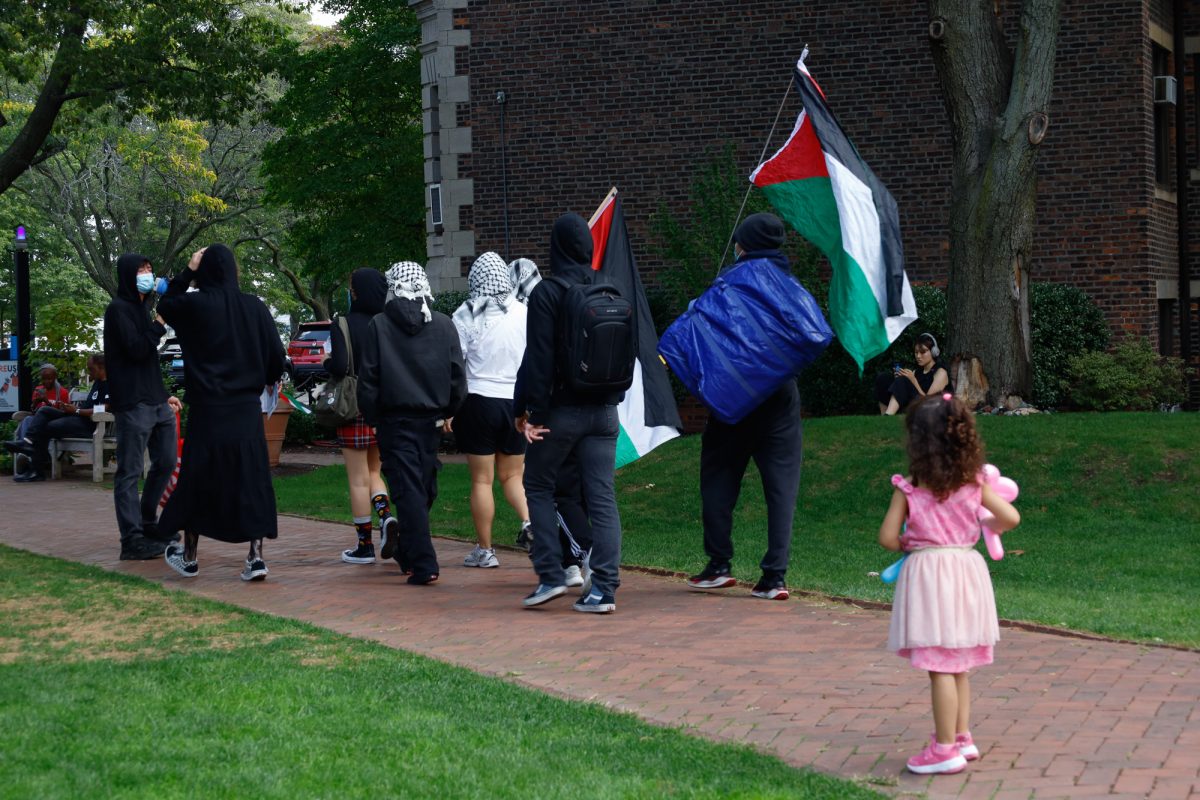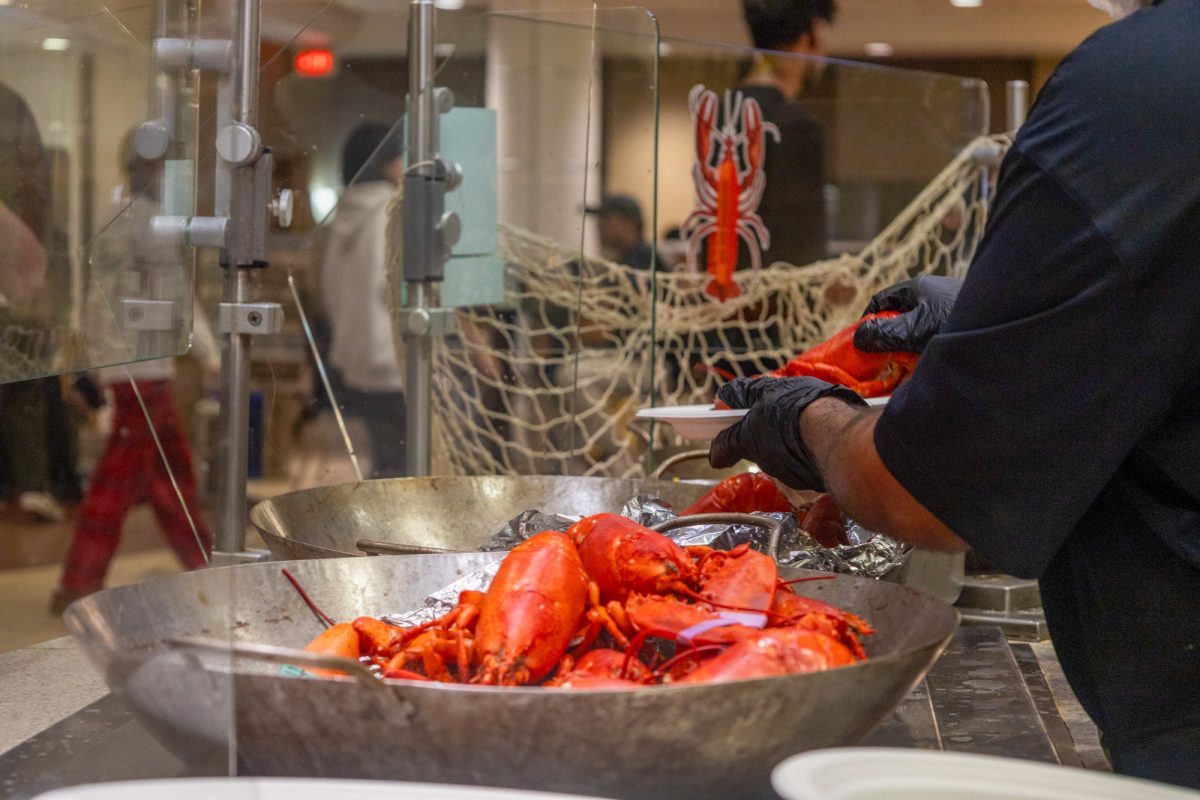By Anna Vidergar and Emilia Wisniewski

Prospective At-Large parties debated issues of marginalized group representation and performative activism less than a week before Boston University Student Government voting opens.
The BU Catholics party was not present for the debate. Its platform is no longer listed on the Student Election Commission list of At-Large party candidates.
At-Large parties are proportionally elected to eight seats of the StuGov Senate, meaning the number of seats each party receives represents what percentage of the vote they get.
Four At-Large parties participated in the debate — the Unity and Social Quality Initiative, IMPACT BU, the Community Action Party and the Center for Gender, Sexuality, and Activism.
The moderator asked all At-Large parties what separates them from other candidates.
Community Action Party leader Jack McGinn, a junior in the College of Arts and Sciences, said his party wishes to give a $500 budget to all community engagement and service organizations to help recover from the effects of the COVD-19 pandemic.
“One of the weaknesses of the current structure of StuGov and its capacity to make change is that it is a very top-down approach,” McGinn said. “Our approach gives the financial means directly to key players in the student body.”
IMPACT BU representative Michael Arellano, a CAS junior, said his At-Large party does not focus on one particular aspect of a person’s identity but rather takes a “holistic approach” in how the party can combat intersectionality and address student issues.
“We think by separating these issues into just one part of a person isn’t really getting to the true core of how these issues are related to each other, how these issues are connected to each other and how these issues really work together,” Arellano said.
CGSA party leader Kaylan Comenole, a CAS junior, said the party’s longevity will help it achieve its goals, one of which aims to increase the number of gender-neutral bathrooms in the CAS building.
“We already have the funding,” Comenole said. “We have an institution. We have clubs. We have a legacy. We have a history.”
CGSA was founded in 2008 and has six clubs they host in its space on the basement floor of the George Sherman Union, Comenole said.
USQ leader Dakota Jackson, a sophomore in CAS, said his party runs on a platform of “identity, representation and cohesion” and that they plan to capitalize on “holding the administration accountable” for its “lack of mental health resources.”
“BU has the facilities to maintain and provide a better social experience for students, and we want to improve that,” Jackson said.
Most of the debate was spent in the crossfire section, in which candidates may respond to statements made by any of the other parties and discuss the strengths and weaknesses of their platforms.
Jackson asked Arellano what goals IMPACT BU has already reached to uplift marginalized communities at BU.
“Members of my party, over the past semester, have been individually engaging with each member of academic departments, ensuring that they’re taking the steps forward to making sure their classrooms are accessible,” Arellano said.
IMPACT BU has also worked on the IMPACT round table, Arellano said, which plans to bring together various student groups representing marginalized communities in a monthly meeting.
“Organizations from all sorts of marginalized communities can come together, not just to talk about issues, but also to engage in cultural celebrations or individual identity celebrations,” Arellano said.
Arellano said allies of marginalized communities should “take a back seat” to allow those communities the ability to create solutions they are proud of. Jackson responded by saying his party believed in reaching out to marginalized communities and said Arnello’s ideas seemed “performative.”
“I think your wall of solidarity is simply for show,” Jackson said. “I just think that the idea of taking a back seat is not very fleshed out because if you take a back seat then who’s going to actually step in and have their back when there’s something wrong going on?”
Jackson spoke about USQ’s event bringing together various Black organizations on campus as evidence of concrete action.
“Just being a constant symbol of unity will bring on the people who need help the most,” Jackson said. “It is difficult to really find those types of people because they might feel out of place, but I want to lend up a hand.”
Audience members asked what intersectionality meant to the parties and how they will sustain cultural groups on campus. Following this, the representatives finished with their closing statements — all of which highlighted each parties’ mutual respect for each other and their respective causes.
“I know we’re all united in our fight to make BU a better place,” said USQ representative Kwazi Antwi, a CAS freshman. “We are focused on the social quality aspect of students here at BU and we recognize the real problem that administration doesn’t want to recognize.”
Voting will be made available on BU Student Link between March 28-31. More information on the At-Large parties’ platforms is available here.



















































































































Mel • Mar 25, 2022 at 12:26 pm
Let’s get rid of frats. Don’t let people come home with some type of sexual assault disorder. End the predatory behavior from these frats. Don’t let them lash out!!!